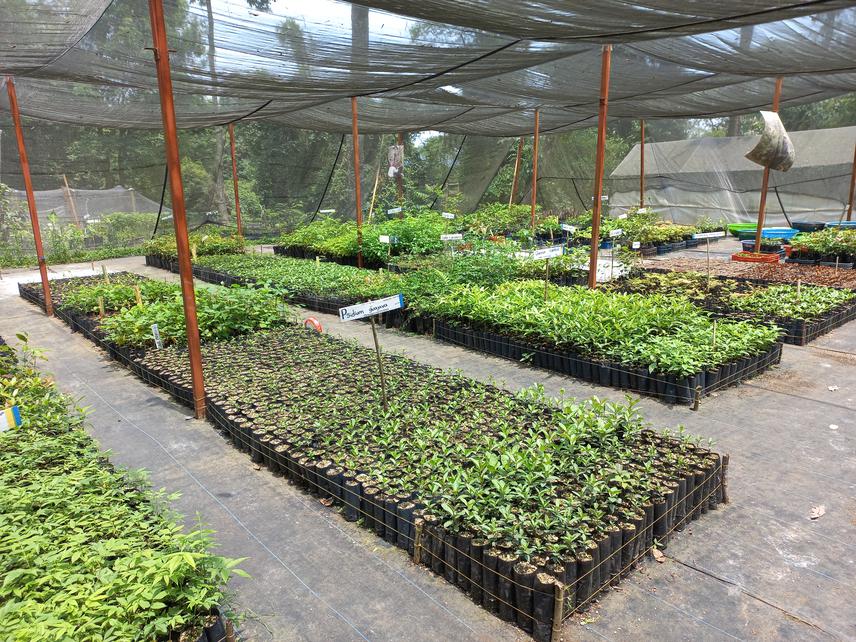Omar Antonio Hernández Dávila
Other projects
9 Nov 2016
Influence of Structure and Composition of Riparian Strips and Isolated Trees of the Cloud Forest on the Seed-Dispersing Frugivorous Bird Community
In the last four decades, the cloud forest of central Veracruz has been reduced by 43% of the original area, and the remaining forest is scattered in different natural remnants, such as riparian strips. Although the riparian strips are immersed in highly fragmented landscape, these remnants harbour 166 tree and shrub species, including six different species of oak trees. Also, these remnants function as sources of propagules, maintain landscape connectivity and provide environmental services, so the conservation of and restoration actions for cloud forest riparian strips are necessary.

For riparian restoration we will use native plant species of Cloud Forest. Some of the plants donated by PRONATURA Veracruz are shown. © Omar Hernández.
Our objectives are:
1) to determine which species are most appropriate for use in the restoration of riparian strips.
The selection of species will include species that are useful for restoration, and endangered or protected tree species, as well as others that are useful to landowners.
2) To evaluate the success of different assemblages of cloud forest species. To this end, mixed plantations (using the nucleation technique) will be set up to accelerate vegetation recovery in 10 cloud forest riparian units. Throughout the process the participation of the landowners will be crucial, so our third objective is and
3) to conduct outreach workshops for landowners to communicate the importance of the riparian strips. This project could provide information on which species are best suited to restore these remnants, as well as promoting the conservation of riparian strips.
Header: Riparian strips in the study area. These remnants are surrounded by pastureland and/or croplands. In some places it is still possible to observe the presence of cattle. © Omar Hernández.